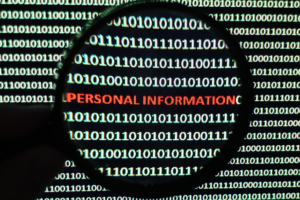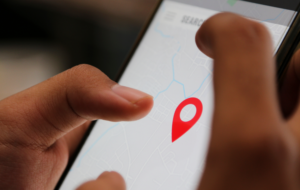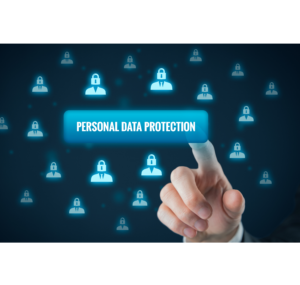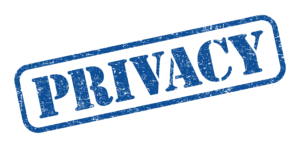 Social media platforms have developed into influential tools over the past 20 years for networking, exchanging content, conducting business, spreading news and information, and many other tasks. Social media has grown to a powerful and appealing communication network and is utilized by billions of users. There are many existing platforms today, however some of the major social applications in popularity currently include: Facebook, Instagram, TikTok, Snapchat, YouTube, Twitter, LinkedIn, and dating applications like Hinge and Tinder. Several of these platforms are visited by billions of users each day. Although social media is a powerful tool utilized today, the fact that there is an abundance of networking platforms means there are also a variety of threats for users.
Social media platforms have developed into influential tools over the past 20 years for networking, exchanging content, conducting business, spreading news and information, and many other tasks. Social media has grown to a powerful and appealing communication network and is utilized by billions of users. There are many existing platforms today, however some of the major social applications in popularity currently include: Facebook, Instagram, TikTok, Snapchat, YouTube, Twitter, LinkedIn, and dating applications like Hinge and Tinder. Several of these platforms are visited by billions of users each day. Although social media is a powerful tool utilized today, the fact that there is an abundance of networking platforms means there are also a variety of threats for users.
 The privacy threats of social media users have increased in number since the pandemic of 2020. Many users have been startled by data breach incidents. These incidents have prompted many to reevaluate their interactions with social media regarding the protection of their personal data.
The privacy threats of social media users have increased in number since the pandemic of 2020. Many users have been startled by data breach incidents. These incidents have prompted many to reevaluate their interactions with social media regarding the protection of their personal data.
 Social networking platforms affect your privacy in numerous ways and in this blog post we will discuss these issues in depth and provide ways to keep your information and privacy secure. Social networking sites gather personal information on users’ interests, political views, racial and ethnic backgrounds, and online behaviors. This data is frequently utilized to aid in behavioral advertising efforts and it can be utilized in algorithms that promote user engagement. In the wrong hands, there can be unfavorable and discriminating effects. Massive amounts of personal information are gathered by social media corporations, most significantly Facebook, which had the greatest fine ever imposed on a firm for violating customer privacy. This fine is over 20 times greater than the largest data security fine levied anywhere around the globe. This information is gathered and often used to “micro target” advertisements to consumers. This approach, often referred to as behavioral advertising, when deployed on Social Media platforms, can pose a threat to user privacy, information flow, and psychological well-being.
Social networking platforms affect your privacy in numerous ways and in this blog post we will discuss these issues in depth and provide ways to keep your information and privacy secure. Social networking sites gather personal information on users’ interests, political views, racial and ethnic backgrounds, and online behaviors. This data is frequently utilized to aid in behavioral advertising efforts and it can be utilized in algorithms that promote user engagement. In the wrong hands, there can be unfavorable and discriminating effects. Massive amounts of personal information are gathered by social media corporations, most significantly Facebook, which had the greatest fine ever imposed on a firm for violating customer privacy. This fine is over 20 times greater than the largest data security fine levied anywhere around the globe. This information is gathered and often used to “micro target” advertisements to consumers. This approach, often referred to as behavioral advertising, when deployed on Social Media platforms, can pose a threat to user privacy, information flow, and psychological well-being.
According to a pew research survey(1), approximately 80% of social media users expressed concern about how businesses and advertisers might access the information they post on these sites, and 64% thought the government should do more to regulate advertisers. Problems involving social media privacy arose during the early 2010s as a result of Facebook’s failure to protect user data. According to The Information Commissioner’s Offices (ICO) investigation, Cambridge Analytica was able to gather data on up to 87 million people(2) without their knowledge throughout the globe in 2015. According to the New York Times(3), the largest known Facebook data leak occurred in 2015 when Cambridge Analytica’s contractors and staff acquired the private Facebook data of tens of millions of users in order to sell the psychological profiles of American voters to political campaigns. According to the guardian.com(4), four years after the scandal shocked the internet, Facebook surprisingly agreed to settle a lawsuit where Facebook users demanded damages due to Facebook providing Cambridge Analytica access to the private data of Facebook users. This world-renowned social media privacy violation opened the gates to a whole new aspect of privacy protection issues to users.
 Data collection is at the heart of the business models of many social media companies. Since data collection is so beneficial to these companies, client privacy is gravely threatened by social network mergers and acquisitions. However, platforms that made a promise to protect user privacy have frequently been taken over in recent years by businesses that don’t guarantee user privacy.
Data collection is at the heart of the business models of many social media companies. Since data collection is so beneficial to these companies, client privacy is gravely threatened by social network mergers and acquisitions. However, platforms that made a promise to protect user privacy have frequently been taken over in recent years by businesses that don’t guarantee user privacy.

Data Collection and Privacy
Data breach(5) is a significant privacy threat in today’s world. A data breach occurs when sensitive and confidential data, commonly from social media platforms, is stolen without authorization. Data breaches are also known as data leaks, or data spills. Since social media is such a large source of public and private information such as: marital status, where people live, interests, social and economic status, and line of work, hacks to these platforms can ultimately be very dangerous. It’s noteworthy that social media companies don’t just use their platforms for surveillance and behavioral advertising. Companies like Facebook use hidden monitoring techniques to follow users across a variety of apps, websites, and devices. Because of this, even those who consciously decide not to utilize social media are still affected by the data collection and advertising practices used by these corporations.

Data Mining
One of the primary privacy threats prevalent on the internet today is the risks associated with data mining. Data mining(6) is the automated processing of vast amounts of data by computers. It tends to focus on the data on the basis of previous purchases, frequent travel destinations, or life events to analyze people’s behavior. The method raises ethical questions for companies using data mining as well as concerns about client privacy. Marketers in the industry use consumer information as a gold mine to extract key information and trends of buyers. This mass automated process searches for trends and patterns to inform businesses of key insights that, when leveraged, will benefit their company as a whole. For example, a company may find their product sells well in one part of the United States, but fails miserably in another part, or sells significantly well to a certain race/gender/age group and not to others. The most popular type of data mining is when a targeted ad pops up on your social media feed after you have searched with your internet browser for a desired good or service.
 Phishing
Phishing
Another privacy threat relevant today is phishing. Phishing(7) is a method in which criminals and attackers attempt to pose as a reputable company, most frequently as an email, text message, or phone call, in order to deceive consumers to disclose private information such as passwords, banking information, or personal information about themselves. Additionally, phishing attacks can deploy malicious software on a victim’s computer by getting the user to click on a suspicious link. Phishing attacks have risen in popularity in 2022 by convincing individuals to log into fake social media websites where hackers are waiting, ready to steal their personal information. With this issue of phishing becoming so prevalent today, it is important to be cautious of the websites that you enter your personal information on to ensure they are reputable. Bots and Botnet attacks(8) are a similar issue dealing with the emergence of social media popularity today. Fake social media accounts are solely created to spam media users, send out harmful links, steal data, and ultimately assist with cybercriminals efforts to gain access to individuals devices and company networks.
Privacy Best Practices
To overcome and get rid of these privacy threats that have come to be associated with social media, the most common way to keep your information safe is simply keeping your account private. Adhering to privacy best practices on social media ensures you are in control of who follows you and who has access to your private information. (9)“According to a new study from Viasat Savings, nearly 50% of those surveyed keep their social media accounts in private mode, while the remaining half chose to be public and open.” Although social media influence is gaining popularity by the minute, the issue of privacy protection is of massive importance, and once your private information has hit the internet, it will never truly be erased. It is important to pay close attention to privacy settings in the creation of social media accounts. You should be cautious with the pictures and videos you choose to share with the internet, this includes images of other people.
 And probably the most important issue, turn your location settings off! Through location data and social media check-ins, the entire world is made aware of your current whereabouts. This might be fatal if you are dealing with a stalker, but the danger goes far beyond stalkers. By promoting the idea that your property is empty through the sharing of content, you give burglars a reason to target it.
And probably the most important issue, turn your location settings off! Through location data and social media check-ins, the entire world is made aware of your current whereabouts. This might be fatal if you are dealing with a stalker, but the danger goes far beyond stalkers. By promoting the idea that your property is empty through the sharing of content, you give burglars a reason to target it.
 What is being done to protect your privacy?
What is being done to protect your privacy?
Popular social media and internet websites have also begun making efforts to keep their users’ privacy protected. For example, (10)Apple and Google have begun amending the regulations governing online data collection. Under the issue of privacy protection, Apple has launched technology that stops marketers from tracking users. Digital advertising-dependent Google is trying to have it both ways by redesigning the system so it may continue to target people with advertisements without abusing access to their personal data. In addition, Apple introduced a pop-up window for iPhones that asks users’ permission before tracking them while using different apps. Google has indicated that they intend to get rid of monitoring software from the Chrome web browser to keep your search history and browsing data private. Facebook also disclosed that hundreds of its engineers were working on a novel strategy for showing advertisements without utilizing users’ personal information.
 When you consider big name businesses are citing the importance of privacy protection and putting its users first, it should be assumed that this is a worldwide issue and businesses should make it a priority to ensure their users’ data is protected from cybercriminals and hackers.
When you consider big name businesses are citing the importance of privacy protection and putting its users first, it should be assumed that this is a worldwide issue and businesses should make it a priority to ensure their users’ data is protected from cybercriminals and hackers.
 Need More Information?
Need More Information?
If you’re looking to promote your business online, digital marketing is the way to go! Contact us today to learn more about our digital marketing services and how we can help your business grow.
If you would like more information about this topic or have questions about any of our services, please be sure to contact us. We would love to help.
3. https://www.nytimes.com/2018/04/04/us/politics/cambridge-analytica-scandal-fallout.html
5. https://sopa.tulane.edu/blog/key-social-media-privacy-issues-2020
6.https://sopa.tulane.edu/blog/key-social-media-privacy-issues-2020
7. https://sopa.tulane.edu/blog/key-social-media-privacy-issues-2020
8. https://sopa.tulane.edu/blog/key-social-media-privacy-issues-2020
10. https://www.nytimes.com/2021/09/16/technology/digital-privacy.html
